Oct 26, 2022
DIFFERENT WAYS TO SAY "YES " IN ENGLISH
Six situations where you might need to say “yes”
1. Say “yes” to a request
2. Agree with an opinion
3. Say “yes” to an offer
4. Confirm a fact
5. Give permission
6. Say “yes” to a suggestion
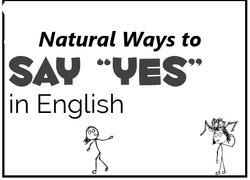
Say “Yes” to a Request
One of the most common situations where we use the word “yes” is when someone wants us to do something for them.
Maybe it’s at work:
Or at home:
Or it might be a request from a friend:
Whatever it is, there are loads of different ways you can say “yes” to requests.
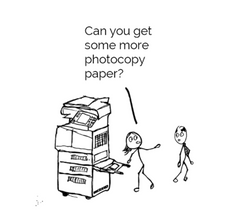
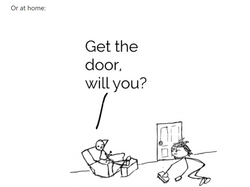
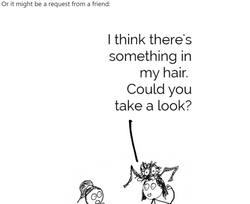
1. No problem
This is the classic!
This is a very common way of saying “yes” to a request. It does a good job of making everything feel under control.
2. Sure
This one is pretty informal.
3. Sure thing
This is like “sure,” but a little less formal. It also feels a bit more enthusiastic and gives off a “can-do” positive energy. As a result, it’s pretty popular with Americans.
4. No worries
This is actually an Australian English expression.
We all know that Australians are well known for having a rather relaxed attitude towards life.
And this expression totally captures that unstressed, chilled-out feeling.
5. Consider it done
This expression says, “I’m a reliable person! You can count on me!”
When you say this, you come across as an efficient person with your life under control.
6. I’m on it
This one is quite similar to “consider it done.”
When you use it, you’re saying, “I’m totally capable of this. You don’t need to worry.”
7. I’d be delighted
OK. This one is quite strong in terms of emotional expression.
It should be a response to a big request — usually one with emotional connections.
So it could work if someone asks you to be the godmother for their child, for example.
But it would sound a bit weird if you’re being asked to take out the rubbish.
8. I’d love to
This is just like “I’d be delighted.”
So remember to use it for situations that are likely to delight you, like looking after your bosses seaside mansion for a week.
Not cleaning his car.
Unless you like cleaning cars, I guess.
9. All right
“All right” is a nice, neutral expression.
But be careful because it can sound a bit too uninterested.
10.Fine
Again, this one is very neutral, but it can show a lack of enthusiasm in some situations.
So, like with “all right,” only use it for boring, everyday tasks, otherwise you might seem insincere.
11. Gladly
This is a little old fashioned and light-hearted.
It’s got a nice, calm and positive feeling to it, though.
12. By all means
When you use this expression, you’re saying, “I’m really happy to help you, and I’m glad that you asked. I like helping you.”
13. Of course
Another classic way of saying “yes.”
But you know this one already, right?
14. Certainly / Definitely
“Certainly” and “definitely” both mean more or less the same thing.
And when you’re using these in answer to a request, they have a similar meaning to “sure” or “sure thing.”
Just a little less informal.
15. Absolutely
Very similar to “certainly” or “definitely,” but this one is a little more enthusiastic. It shows that you really want to help.
16. Yep
Informal, familiar and casual.
It can be a nice one to use when you’re with friends and family. It shows familiarity and that you’re comfortable with the other people.
In less casual situations, I’d recommend avoiding it. Just in case.
17. Yeah
This is basically the same as “yep.”
18. OK
Another classic!
Interestingly no one really knows where this word came from, though some theories are quite popular.
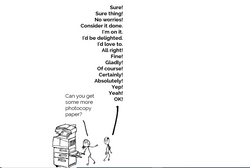
Ways to Say Yes in Agree with an Opinion
Agree with an Opinion
Sometimes we don’t say “yes” in order to give information to someone.
Sometimes we just want to say, “I agree with you — let’s share this moment.”
It’s less an exchange of information and more of a bonding experience — a process that brings people closer together.
Maybe you want to talk about a person:
Or maybe you want to complain about how terrible the world is:
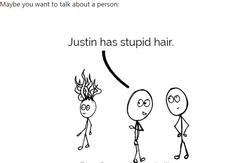

1. So true
It means what it says!
When you really, really agree with what someone says (or you want to pretend that you do), then use this!
2. Indeed
This one also shows strong agreement with someone.
It is — It really is / He does — He really does
This one completely depends on what you’re agreeing on.
3. Uh huh
This is a good little phrase that you can use to show agreement without interrupting the other person.
Technically speaking, these little phrases are called “back channels,” and we use them all the time. Other examples of back channels are “mmm” and “mm-hmm” and “ahhh.”
Next time you’re listening to people speaking English, try listening to the sorts of back channels they use — it’s fun. Everyone uses slightly different ones.
4. Totally
This one is strong, but when the person you’re agreeing with says something that you really, really agree with, then it’s time to bring out the big guns and use this one.
5. Absolutely
“Absolutely” is more or less the same as “totally.”
6. My thoughts exactly
It’s a nice phrase, isn’t it?
It basically means “I completely agree with you. You’re right! I think exactly the same way as you!”
Which is nice.
My thoughts exactly
It’s a nice phrase, isn’t it?
It basically means “I completely agree with you. You’re right! I think exactly the same way as you!”
Which is nice.
Ways to Say Yes to an Offer
We also sometimes want to say “yes” in order to accept an offer.
It might be someone offering you some lovely food:
It could be someone offering you something fun:
Or it could be something ridiculously generous:
Say Yes to Give Permission
And what about when someone asks you for something?
You need to say “yes” then (unless you don’t want to give them what they’re asking for).
A classic example is the seat-on-a-train situation:
Or they might want something you have:
Or it could be a “big ask”:
1. By all means
This one is particularly polite, but I guess in these situations, being polite is a good idea.
We use language to get past those awkward little situations that come from wanting something from someone else.
2. Go ahead
This one is quite casual — it’s the sort of phrase I’d use if someone wanted to take the seat next to me on the train.
It only works with requests like “Is it OK if I …” — when someone is asking permission to do something, not when they’re asking for something from you.
5. Be my guest
Nice, isn’t it?
When someone says this to me, I feel completely at ease.
Again — only use this when someone is asking if it’s OK for them to do something or to take something from you.
6. Absolutely
This word keeps coming up, doesn’t it?
Well, it’s obviously a very useful one.
7. Yep
As mentioned above, be careful with this one.
It could seem a little rude in the wrong situation.
8. Yeah
Again, although this can be quite friendly, make sure you’re not in a situation where you need to be very, very polite.
9. Fine
Finally, this one is also a bit like “yep” and “yeah” — it’s rather informal and casual.
If you’re giving permission for something small, like opening the window, then it’s … well … it’s fine.
But if someone wants to take you out to the best restaurant in town, then you might want to sound a bit more enthusiastic.
Unless you really don’t like restaurants. In which case, you could always say “no” instead.
By undefined
24 notes ・ 64 views
English
Beginner